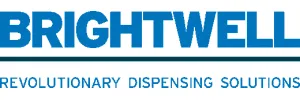News & Insights
Read the latest news from us and our clients across the globe

Posted on 29 January 2014 by adtrak.admin
A chemical-free education
The use of chemical-free cleaning is seeing a gradual rise within educational establishments across the UK. Carl Robinson of cleaning and FM specialist Nviro, discusses its implementation and looks at how to overcome the barriers of cleaning without chemicals.
Sustainability and the green agenda influence many different business and services sectors, and none more so than cleaning. However, developing the knowledge in order to establish systems and practices that deliver an environmentally friendly approach can leave many individuals and institutions confused by buzzwords and doublespeak. For cleaning, in particular, it’s important to get to the root of the issue, so that contractors and clients can begin to fully understand the matter. The first hurdle for any contractor is helping clients trust that new sustainable and chemical-free methods are as effective as their predecessors. This is something that Nviro have successfully worked towards with a University on the South Coast, yet the processes involved with introducing it can be demanding and problematic.
Gaining client trust
University campuses feature a vast array of environments, from simple classrooms and lecture halls, to gyms, science labs and medical centres – so hygienic conditions are imperative throughout. A common perception of cleanliness is a shiny surface and the smell of disinfectant that lingers in the air after the job has been done. So for contractors trying to apply green cleaning, their first task is to create a greater level of understanding about what makes something clean, and exactly how the new chemical-free processes work.
This requires a strong relationship between the contractor carrying out the job and the campus management at the university in question. However, once this is established, both parties can begin to approach the implementation of green cleaning as a team.
It’s also important not to rush into a complete overhaul of the cleaning procedure already in place. As with the example of one of the large Universities that we service on the South Coast, new procedures were gradually brought in so that their effectiveness could be assessed.
Products such as microfibre cloths and mops work as a good starting point to introduce an institution to these methods. A gradual instigation will help gain trust and understanding from not just the university management team, but the students and lecturers who use the buildings every day.
Health benefits
The benefits of using these new techniques stretch further than their positive environmental effects, they can also lead to creating healthier environments for students, lecturers and the cleaning operatives themselves. As mentioned previously, people perceive the smell of disinfectant that’s left behind as an indicator of cleanliness, yet it’s that very smell that could be causing harm. The use of chemicals has been proven to have an impact on health issues such as asthma and other respiratory problems.
The fact that evidence and examples of the successful implementation of green cleaning are increasing is a very positive sign for its growth within educational environments. However, as the technology and science continues to progress there is still work to be done. You certainly won’t be seeing the use of chemicals being wiped out of the cleaning industry altogether any time soon, yet there are great products which are helping institutions move closer towards a more complete and sustainable approach. At the end of the day, the biggest job is not the delivery of chemical-free cleaning regimes, but convincing clients and the wider public that their results match those of more ‘traditional’ methods.
For more information about Nviro please contact 0800 032 1334, email info@nviro.co.uk or visit www.nviro.co.uk.
Published in University Business – January 2013
Experts in Public Relations Services & Communications Management
Our ServicesGenuine industry specialists in cleaning and hygiene, environmental and recycling, and facilities management
Our Sectors












